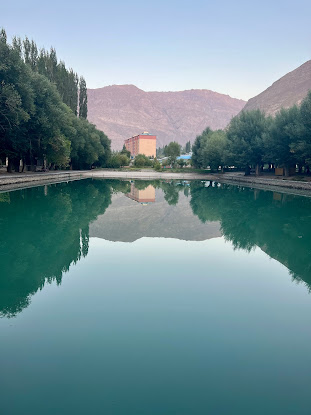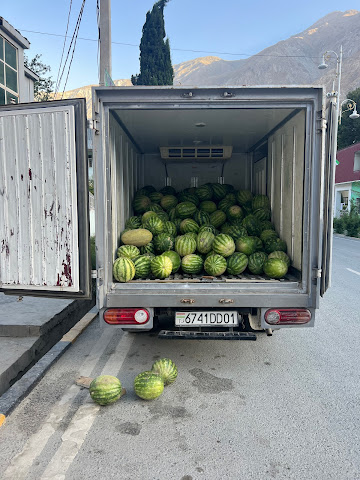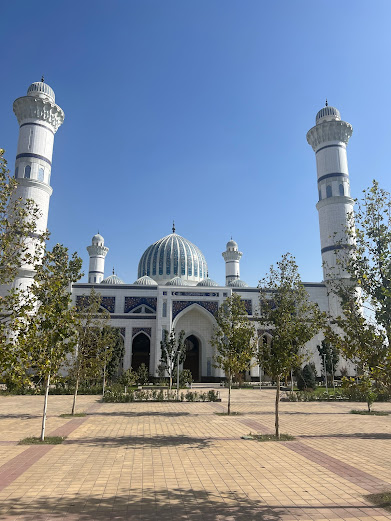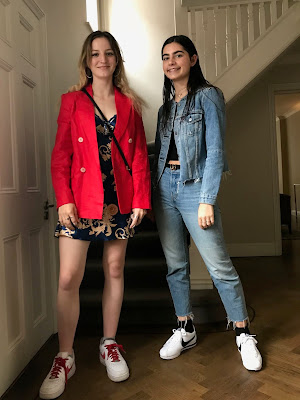Kalai Khomb friends
We spend the night in Kalai Khomb where I photograph these two friends in front of the mosque. They have lived only here.
The small village is next to towering mountains and the sometimes raging c 970km Panj River which drains the Sarez Lake, itself filled by glacier melt, in the Bartang Valley. The river is the natural border separating Tajikistan and Afghanistan. Remarkably, it dissolves into the desert. Before it goes, though, water is siphoned to the cotton fields, Tajikistan's major export, since the Aral Sea went dry (watering cotton) during Soviet times.
But the Pamir Highway : it is a c 1,800km two-lane (sometimes) road that begins in Termez, Uzbekistan, and ends in Osh, Kyrgyzstan. Pre highway, the route was an important part of the Silk Road connecting East and West.
The present hw began in 1931-35 under Stalin to transport troops and provisions and maintain his control here. Over many years, sections were upgraded to concrete or tarmac but, from around Kalai Kumb, it is mostly a dirt and rock road making for brutal driving. Along with holes and ditches, we are 1-3 feet from the road's edge dropping downwards to the battleship grey river below. Impassable without a 4WD.
My original plan was to cycle the hw, which I now see would have been dangerous and foolhardy. Firstly I cannot service a bike which is certainly an essential requirement. Then there are the passes over 3,000m.
As we drive I note the Chinese are in the midst of bouldering and eventually, I learn, will pave the full hw, expected to finish by 2025. Payback is the minerals and precious metals that can be delivered more rapidly to Kashgar than Eastern China where the people are. Chinese orange trucks, driven by Tajiks, create impasses and Aziz honks, curses and races around them without changing a facial expression, which is normally glowering (though he is extremely friendly)
As trucks approach there is a game of chicken between drivers (Aziz) dictated by the smoothest passage on the road - is a broken axel from a pothole less inconvenient than a collision ?
Road block



















































